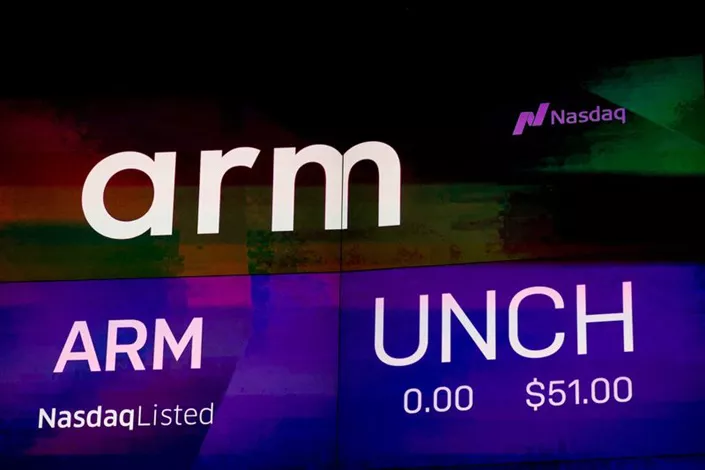Arm Holdings (NASDAQ: ARM) saw its shares fall by over 10% in premarket trading on Thursday, following a weaker-than-expected revenue and profit forecast for the upcoming quarter. The semiconductor firm attributed its cautious outlook to ongoing global trade tensions.
The company’s revised forecast comes as major clients, including Apple (O :AAPL) and Advanced Micro Devices (NASDAQ: AMD), cited higher costs resulting from U.S. tariffs and stricter regulations on exporting advanced semiconductors to China.
Arm’s CEO, Rene Haas, told Reuters that the revised guidance was influenced by the delay of a major licensing deal, which may not close in the fiscal first quarter.
Unlike chip manufacturers such as Nvidia (NASDAQ: NVDA) and AMD, Arm generates revenue through licensing its intellectual property and charging royalties on each chip sold using its technology. Analysts from Citigroup (NYSE:C) noted that Arm’s royalties might face challenges due to tariff-driven demand issues, though the company’s strong pricing power could help offset some of the impact.
The UK-based company, which provides chip architecture widely used in smartphones and data centers, expects first-quarter revenue to range from $1 billion to $1.10 billion. The midpoint of this forecast is slightly below analyst expectations of $1.10 billion. In contrast, Arm’s fourth-quarter revenue exceeded estimates.
Research firm Counterpoint Research recently predicted a decline in the smartphone market this year, partly due to economic uncertainty tied to tariffs.
Barclays analysts expressed caution, pointing out that Arm’s high exposure to the consumer market makes the company particularly vulnerable to macroeconomic factors. As a result, at least three brokerages lowered their price targets for Arm’s stock, bringing the median target down to $144.50, according to data from LSEG.
Arm’s shares are trading at 58.76 times expected earnings for the next 12 months, a significant premium compared to Nvidia’s 24.49 and AMD’s 20.96. Despite the recent drop, Arm’s stock has gained nearly 1% so far this year, while Nvidia and AMD have seen losses of around 13% and 17%, respectively.
Related topics:


